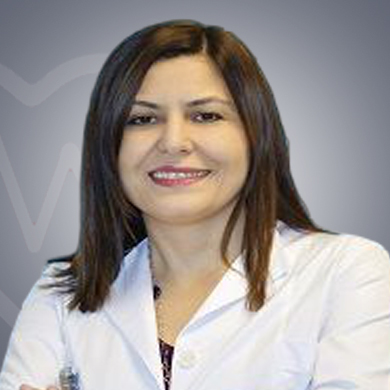
10 Years of experience
Speaks: English
Radiation oncologists are doctors who use high-intensity photon beams to target and kill cancer cells. About one-half of all cancer patients undergo radiation treatments. Some of the conditions the radiation oncologist Dilek Unal treats are:
Cancer of lung, head & neck, prostate, and breast are effectively treated with radiation therapy. Lung cancer radiation therapy uses powerful X-rays to kill cancer cells or to stop them from growing. Radiation can also be used before lung cancer surgery to reduce the size of the tumor or after surgery to kill the cancer cells in the lungs.
Below are some symptoms of cancer which should be discussed an oncologist for proper diagnosis of the condition.:
Cancer can cause various symptoms, but most of these symptoms are often caused by other diseases, benign tumors, or other problems. In case you have symptoms that do not go away, see your doctor so that problems could be detected and treatment can be planned.
You can reach Dr Dilek Unal from 11 am to 5 pm on Monday to Saturday. He does not see patients on Sunday.
The list of popular procedures that Dr Dilek Unal perform is given below:
Proton therapy is a type of radiation therapy that uses high-energy beams to treat cancer. It has been used with X-rays to treat cancer and noncancerous tumors. Proton therapy uses energy from positively charged particles known as protons. This therapy is also effective in treating several kinds of cancer. . CyberKnife is a non-invasive option for the treatment of both cancerous and non-cancerous tumours. The treatment delivers beams of high-energy radiation to the tumour with high accuracy and offers new hope to patients worldwide. It is used for the treatment of different types of cancer in the body, including the Liver, Pancreas, Kidney, Prostate, Lung, Brain, and Spine.

Share Your Experience about Dr. Dilek Unal

A radiation oncologist is a doctor who specializes in treating cancer with radiation therapy. They coordinate with your primary physician and other cancer specialists, such as medical oncologists and surgeons to ensure your care. They discuss cancer with you, the role of radiation therapy in your treatment plan. Radiation oncologists evaluate the nature of cancer and use a wide spectrum of treatment techniques, such as hyperthermia, external beam radiotherapy, and radioactive implantations. They monitor the overall health of cancer patients and suggest and establish long-term relationships with patients post-treatment.
The tests required before and during the consultation by a radiation oncologist are listed below:
A mammogram is the most common test for detecting breast cancer. Having mammograms regularly can lower the overall risk of mortality to breast cancer. It is easier to treat and before it is big enough to feel or cause symptoms.
Radiation oncologists are responsible for treating different types of cancer. If a person has been diagnosed with any of the following conditions, they should see a radiation oncologist:
You need to see a radiation oncologist if you have the below-listed symptoms: :